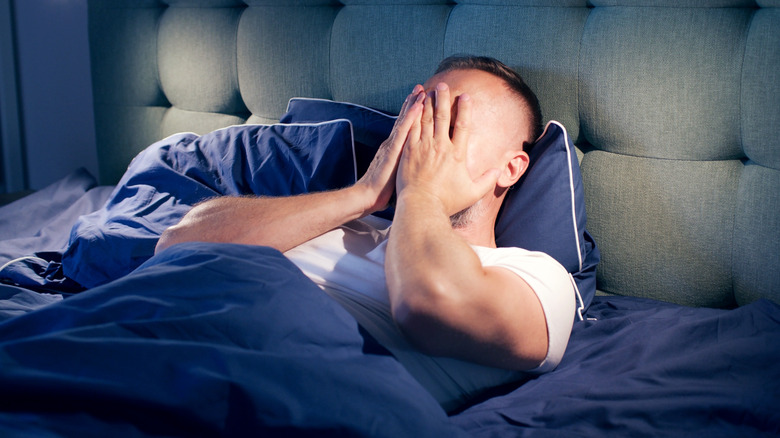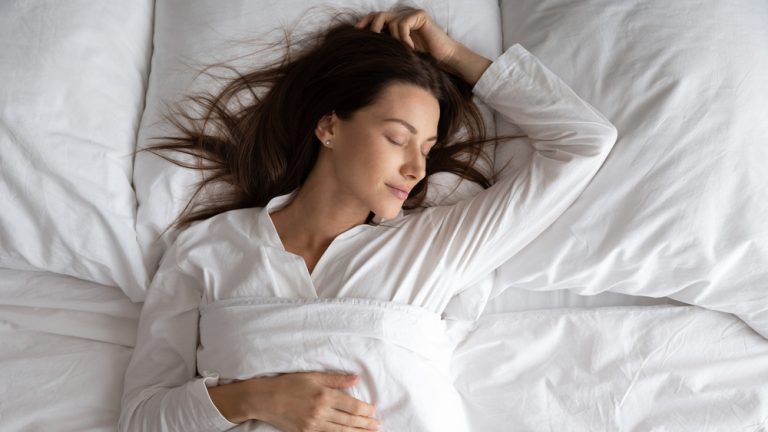When you come home from work after a hard day, it can be hard to think about cooking something healthy for dinner. You could order takeout or have a meal kit service, but sometimes it’s just easier to have a “go-to” meal at the ready. It might be salmon every day like Victoria Beckham, or you might prefer a hearty steak and potatoes. Eating the same thing each day might be a great idea if you want to eat healthier because you can control your daily calorie intake and keep your meal prep to just once a week.
On the other hand, you might miss out on other nutrients that different vegetables and protein sources can provide. If you eat the same foods every day to help you lose weight, you might also find it difficult to sustain for a long time and be tempted to venture towards unhealthy foods (per Healthline).
Eating a limited variety of foods is also linked to your sleep patterns, according to a 2024 article in Appetite. People who sleep less than five hours a night tend to eat a narrower variety of foods compared to those who get their recommended 7 to 8 hours of sleep.
How what you eat affects sleep duration and quality

The 2024 article in Appetite said that a deficiency in certain nutrients was linked to specific sleep durations. Shorter sleep was linked to a lower intake of vitamin C, tap water, lutein, zeaxanthin, lycopene, and selenium. Longer sleep (more than 9 hours) was associated with lower intake of theobromine and choline. Alcohol was linked to longer sleep duration. According to Johns Hopkins Medicine, adults needing 9 hours of sleep each night could be a sign of a sleep disorder or medical issue.
Even though it’s recommended for you to get at least seven hours of sleep a night, it’s also a matter of sleep quality. According to a 2024 review in Advances in Nutrition, you need slow-wave sleep (also known as deep sleep) and REM (rapid-eye movement) sleep each night to strengthen your memory function. The more fat and carbs you eat, the less sleep you’ll get in these stages. Highly processed and sugary carbs can interfere with sleep quality, but adding more fish and vegetables can improve sleep. You’ll need to find the right balance of protein in your diet if you want to sleep well. Eating less than 16% of your calories from protein makes it harder to get to sleep, but eating more than 20% of your diet from protein could have you waking up through the night.
The best diet to help improve your sleep

Lack of sleep could also get you eating the same foods, particularly unhealthy foods. When you’re tired, you’re more likely to grab foods higher in saturated fats and carbohydrates and eat fewer vegetables. According to a 2024 article in Physiology & Behavior, insufficient sleep will have you reaching for snacks or eating more often, and these foods are often high-calorie comfort foods. We consume more calories when we’re tired to relieve mental stress, get a quick dopamine hit, and help keep us awake. Rather than eat foods that sustain our bodies, eating when you’re sleep-deprived points to our desire for pleasure.
Although one particular diet might not be able to claim that it promotes better sleep, a 2025 review in Frontiers in Nutrition says that the Mediterranean diet’s emphasis on a wide variety of fruits, vegetables, whole grains, and fish is linked to improved sleep quality. Certain foods such as cherries could improve sleep because they’re naturally rich in melatonin.



